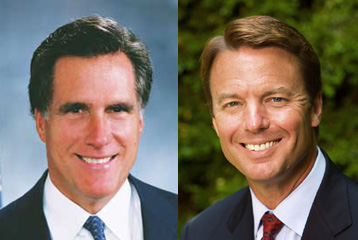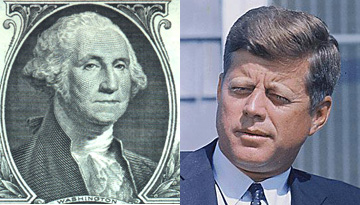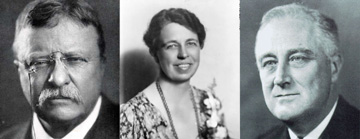In another sign of how the country is going to hell in a handbasket, Robert Pear writes in today’s New York Times:
The Equal Employment Opportunity Commission said Wednesday that employers could reduce or eliminate health benefits for retirees when they turn 65 and become eligible for Medicare.
The policy, set forth in a new regulation, allows employers to establish two classes of retirees, with more comprehensive benefits for those under 65 and more limited benefits — or none at all — for those older.
More than 10 million retirees rely on employer-sponsored health plans as a primary source of coverage or as a supplement to Medicare, and Naomi C. Earp, the commission’s chairwoman, said, “This rule will help employers continue to voluntarily provide and maintain these critically important health benefits.â€
Let us pause and reflect upon Ms. Naomi C. Earp’s words. In fact, I was so taken with what Ms. Naomi C. Earp said that I went to the EEOC web site for more. And lo, there’s a press release with the head:
Implementation of Final Rule Ensures Age Bias Law is No Barrier to Employer Insurance
And in the body of this press release I read:
The U.S. Equal Employment Opportunity Commission (EEOC) today announced the publication of a final rule allowing employers that provide retiree health benefits to continue the longstanding practice of coordinating those benefits with Medicare (or comparable state health benefits) without violating the Age Discrimination in Employment Act (ADEA). The regulation, which safeguards retiree health benefits, was published in today’s Federal Register and is available on the EEOC’s web site at www.eeoc.gov.
“Implementation of this rule is welcome news for America’s retirees, whether young or old,†said Commission Chair Naomi C. Earp. “By this action, the EEOC seeks to preserve and protect employer-provided retiree health benefits which are increasingly less available and less generous. Millions of retirees rely on their former employer to provide health benefits, and this rule will help employers continue to voluntarily provide and maintain these critically important benefits in accordance with the law.â€
The EEOC proposed the rule in response to a controversial decision in 2000 by the U.S. Court of Appeals for the Third Circuit in Erie County Retirees Association v. County of Erie. The court held that the ADEA requires that the health insurance benefits received by Medicare-eligible retirees be the same, or cost the employer the same, as the health insurance benefits received by younger retirees. After the Erie County decision, labor unions and employers alike informed the EEOC that complying with the decision would force companies to reduce or eliminate the retiree health benefits they currently provided – leaving millions of retirees aged 55 and over with less health insurance, or no health insurance at all.
Ah, I see. The Bushies are protecting retired people from discrimination by allowing their former employers to cut off their health benefits. Robert Pear continues,
Premiums for employer-sponsored health insurance rose an average of 6.1 percent this year and have increased 78 percent since 2001, according to surveys by the Kaiser Family Foundation. Because of the rising cost of health care and the increased life expectancy of workers, the commission said, many employers refuse to provide retiree health benefits or even to negotiate on the issue.
In general, the commission observed, employers are not required by federal law to provide health benefits to either active or retired workers.
Because health care costs are ballooning, the burden of providing health insurance for retirees is too much for many businesses to bear — no doubt this is true — so the EEOC says it’s OK for the companies to cut the retirees loose and let them fall back on Medicare. But because Bushies are Bushies, they can’t just come out and say it that way. Instead, they crank out some Orwellian doublespeak pretending this is all for the retirees’ own good.
And, of course, wingnuts want to eliminate Medicare also. As Rich Lowry so well explained, spending on big government programs like Medicare siphons off money that could be better put to use maintaining a big military to spread American hegemony around the planet and allow all people to enjoy our superior way of life. Until, of course, they are too old to be productively making money for Halliburton. I believe the plan at that point is to set the old folks adrift on ice floes, although given global warming I’m not sure how that’s going to work, either.
Robert Pear continues:
AARP and other advocates for older Americans attacked the rule. “This rule gives employers free rein to use age as a basis for reducing or eliminating health care benefits for retirees 65 and older,†said Christopher G. Mackaronis, a lawyer for AARP, which represents millions of people age 50 or above and which had sued in an effort to block issuance of the final regulation. “Ten million people could be affected — adversely affected — by the rule.â€
The new policy creates an explicit exemption from age-discrimination laws for employers that scale back benefits of retirees 65 and over. Mr. Mackaronis asserted that the exemption was “in direct conflict†with the Age Discrimination in Employment Act of 1967.
Seems that way to me. Weirdly, the AFL-CIO supports the Bushies’ plan. I say they have some ‘splainin’ to do.
Just yesterday I stumbled on a group discussion on single payer health care. Righties wittily asked if the government would also provide them with free lunches and congratulated themselves on having the prescience to get jobs with health benefits. Spoken like people who have no experience whatsoever dealing with the health care system. And the wingnuts have no clue what the current “system” is doing to our economy. Ultimately a single payer system would be better for employers and entrepreneurship generally. Righties can’t see anything beyond their own limited experiences and needs, which is what makes them righties.
Speaking of the AARP and Medicare, I found this press release on the AARP site —
“The American people deserve better. It is a shame that our elected officials will go home for the holidays without helping low-income beneficiaries get the care they need by strengthening programs directly targeted at the most vulnerable older Americans.
“It also is discouraging to millions of older Americans that the administration was unwilling to consider any reductions in the billions of dollars in excess payments to Medicare Advantage plans—particularly to private fee-for-service plans, which do not have to coordinate care and have been the subject of widespread marketing abuses—in order to help improve Medicare.
Bushies don’t see old folks as citizens; they see them as an exploitable resource. But I guess as long as they’re an exploitable resource they won’t be marched off to the Soylent Green factory.




